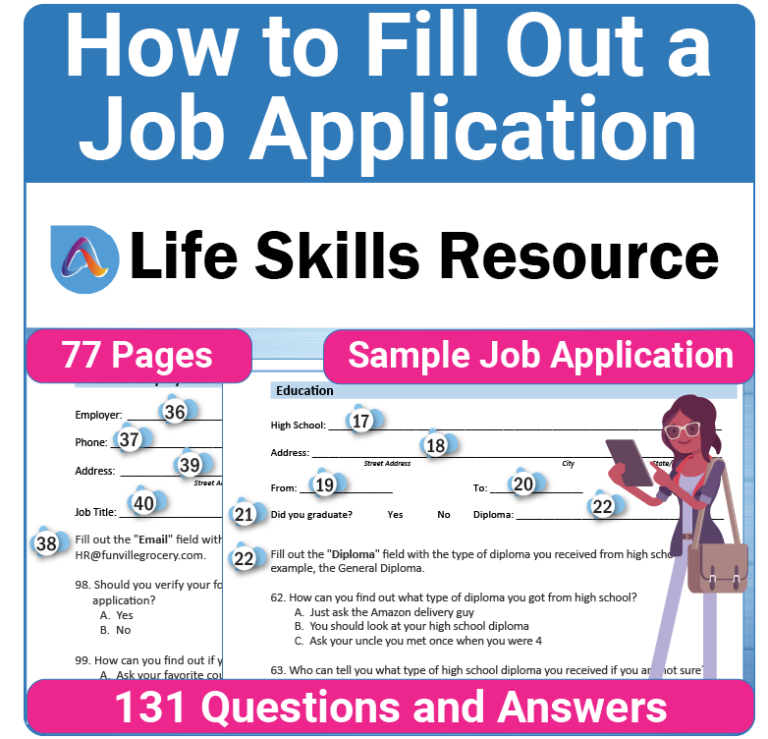Independent Living Skills Guide to Thrive on Spectrum
Autism Spectrum Disorder (ASD) is a unique journey for individuals and their caregivers. It shapes how individuals communicate, interact, and learn. The challenge of teaching independent living skills can feel daunting for parents of teens and young adults with autism and related intellectual disabilities. However, the rewards are immeasurable, as these skills are the building blocks of their transition to adulthood.
Teaching independent living skills to this remarkable group is not just about survival; it’s about empowerment, self-sufficiency, and enabling them to successfully navigate the complexities of adulthood. Let’s explore some of the practical independent living skills that are paramount to their development.
The Art of Managing Finances
One of the most critical independent living skills for teens and young adults with autism and related intellectual disabilities is financial management. Learning to navigate the world of finances empowers them to make informed decisions about spending, saving, and planning for the future.
Real-Life Scenarios
One effective way to teach financial skills is through real-life scenarios. These scenarios illustrate the importance of budgeting, saving time, and making wise financial choices. Whether it’s planning for a major purchase or managing day-to-day expenses, these scenarios are practical and will resonate with teens and young adults.
Banking Basics
Parents and caregivers can also introduce the basics of banking. This includes maintaining a checking account, setting up a savings account, and using credit cards responsibly. Through role-playing activities and discussions, teens and young adults can learn the ins and outs of managing their finances.
Budgeting Mastery
Budgeting is a fundamental skill that lays the foundation for financial independence. Teaching them how to create and stick to a budget is crucial. It empowers them to manage their money wisely and make financial decisions aligned with their goals.
Professional Growth: Nurturing Job Skills
Another pivotal aspect of independent living is acquiring job skills. Employment provides financial independence, fosters a sense of purpose, and develops self-reliance.
Hands-On Experience
An effective way to teach job skills is by providing hands-on experience in a job setting. Volunteering, internships, or working under supervision can assist with this. Hands-on experience can help teens and young adults develop the skills necessary for employment and the ability to interact with employers and coworkers. Parents and caregivers can play a role in teaching resume writing, interview skills, and the importance of punctuality and attendance. These are essential components of a successful job search and employment journey.
Safety First: Navigating Home Safety
Home safety is a crucial independent living skill that ensures personal well-being and peace of mind. Teaching this skill equips teens and young adults with the knowledge to prevent accidents and respond effectively in emergencies.
Practical Drills
Introducing home safety through hands-on activities like fire drills and first aid demonstrations can be engaging and instructive. These drills help teens and young adults understand the importance of smoke detectors, carbon monoxide detectors, and emergency preparedness.
Hazard Awareness
Teaching hazard awareness is essential. It covers topics such as locking doors and windows, notifying someone when leaving the house, and being alert to potential dangers. These skills enhance personal safety and instill a sense of responsibility.
Navigating Online Safety
Online safety is a vital component of independent living in a digital age. Parents and caregivers play a pivotal role in setting boundaries and educating teens and young adults about online safety.
Setting Boundaries
Establishing boundaries and expectations for online activities is essential. This includes monitoring online activity, setting time limits, and discussing potential risks associated with online interactions.
Privacy Protection
Teaching teens and young adults about online privacy, cyberbullying, and how to safeguard personal information online is crucial. These lessons equip them with the tools to navigate the digital landscape safely.
The Reward of Independence
Teaching independent living skills to teens and young adults with autism and related intellectual disabilities is a labor of love and dedication. It requires patience, creativity, and a deep understanding of their unique needs and capabilities. While the journey may be challenging, the rewards are immeasurable.
These skills are not just about surviving in the adult world but about thriving and taking charge of one’s life. The confidence and self-sufficiency from mastering these skills empower individuals to live on their terms.
As parents, teachers, and caregivers, we hold the keys to unlocking the potential of teens and young adults with autism. By imparting these crucial independent living skills, we provide them with the foundation for a successful and fulfilling adulthood. Each individual’s journey may be unique, but the destination is clear: a life of independence, growth, and opportunity.




